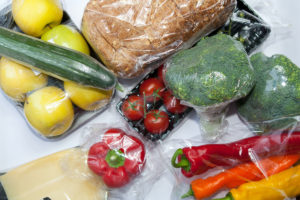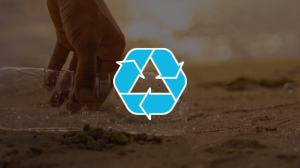Sustainable fashion has a plastic packaging problem
With headlines such as “Microplastics Found Deep in Lungs of Living People for the First Time,” it’s hard not to feel despondent about how the things we buy are packaged.
You might try to do good by purchasing an “ecofriendly” skin-care product made from organic ingredients, or an anorak made from recycled materials – including plastic water bottles – but when it shows up at your door in a plastic jar or wrapped in a polypropylene bag, what’s the point? The items themselves may put the environment at the forefront, but so often, it feels like it all falls apart when you’re left with piles of plastic packaging.
In Canada, 87 per cent of plastic waste finds its way to landfills or into the environment. (The silver, or rather tinfoil, lining is that only 1 per cent of that 87 ends up in the latter.) And there are other packaging options. Skin-care companies could use glass. Fashion companies could package items in paper bags. But those decisions come at other environmental costs. Both glass and paper are heavier to transport, which can mean higher carbon emissions. Because of that weight, the cost of recycling is higher as well.
With overwhelming headlines and personal efforts seemingly futile, it’s hard to know what to do as a consumer – especially since we’re the ones who ultimately have to dispose of this packaging. Since recycled plastic is still plastic, is it really a better option? Do the actions of a single consumer really matter? It turns out, the answer is yes.
“Plastic is in pretty much everything, from our clothes to our carpets to our mattresses to packaging. It’s lightweight, it’s fairly cheap, it’s durable to a fault, it’s flexible when you need it to be. Plastic is kind of a miracle material from the perspective of its versatility,” says Jo-Anne St. Godard, executive director of the Toronto-based Circular Innovation Council, which advocates for a circular economy. “As a material, it has been around for 70 years. What took us 70 years to create is not going to take us two years to fix.”
St. Godard says recycled plastic is a key step for addressing the environmental impact of the material, and that consumers should let it be known, by speaking with their dollars, that recycled plastic, at minimum, is what’s expected.



